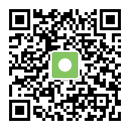Currency Trading Explained

Every time you travel abroad and exchange your local money for another currency, you’ve taken your first step into the world of foreign exchange (or forex for short).
It might seem like a small transaction, but behind the scenes, this simple act connects to a massive financial ecosystem where over $7.5 trillion changes hands every single day.
Let’s break down how currency trading really works, and how you can make sense of it, one step at a time.
How does forex trading work?
Lets say you are based in the United States, planning a summer getaway to Europe in July. Naturally, you will need to exchange your U.S. dollars (USD) for euros (EUR) to spend while you are there.
In July – Before the trip:
- • You want to buy €1,000 for your trip.
- • The exchange rate is 1 EUR = 1.20 USD
- • So, you will need $1,200 to get €1,000
Fast forward to August. Your vacation is over, and you didn't spend any of the euros, , so you are hoping to convert them back into dollars.
In August – After the trip:
- • The exchange rate has dropped to 1 EUR = 1.10 USD
- • Now you only get $1,100
As the exchange rate went down, you lost $100 compared to what you originally paid. This happens because exchange rates move up and down, and that affects how much one currency is worth compared to another.
Note: This is a simplified example. Real-life currency exchanges include spreads (fees) charged by banks or brokers.
Trading the Forex Markets
At its core, forex trading is about speculation – buying one currency while selling another, hoping to profit from changes in the exchange rates. You are not physically carrying cash between countries. Instead, these trades happen electronically on platforms that operate 24 hours a day, across different time zones.
All of this takes place "Over-the-Counter" (OTC), meaning you're dealing directly with other market participants, not through a central exchange.
Example:
A trader buys EUR/USD, expecting the euro to rise against the dollar.
- • If the euro strengthens, they sell it later at a higher price and make a profit.
- • If the euro weakens, they sell at a lower price and face a loss.
Why currencies matter
It’s easy to underestimate how important exchange rates really are. But they’re more than just numbers on a screen, they reflect the strength of a country’s economy and shape everything from the cost of your morning coffee to the price of global trade.
In fact, the forex market is the largest financial market in the world, eclipsing the combined trading volume of giants like the NYSE, London Stock Exchange, and Tokyo Stock Exchange.
That’s because currencies are in constant demand. Whether it’s businesses importing goods, investors shifting funds across borders, or travelers exchanging money, currency is always moving.
Governments and central banks monitor exchange rates closely. Why? Because a strong or weak currency can have serious ripple effects on inflation, interest rates, and overall economic growth.
What moves currency prices?
Several factors influence currency values, with each playing a different role depending on market conditions:
Inflation: Generally, lower inflation leads to a stronger currency, as purchasing power remains stable.
Interest Rates: Higher interest rates tend to attract foreign investment, boosting demand for the currency.
Trade Balance: Countries that export more than they import often see stronger currencies.
Political Stability: Investors prefer stable economies, leading to increased demand for the local currency.
The forex market reacts quickly to these events, which is why staying informed is crucial for any trader, no matter their experience level.
Key takeaways on currency trading
Currency trading might sound complex at first, but at its heart, it’s about understanding value, timing, and global events. With the right platform, educational tools, and risk management strategies, you can learn to navigate this dynamic market with ease.
Whether you're just dipping your toes into the world of forex or looking to sharpen your trading skills, remember: every trade starts with a question: where is value headed next?

Every time you travel abroad and exchange your local money for another currency, you’ve taken your first step into the world of foreign exchange (or forex for short).
It might seem like a small transaction, but behind the scenes, this simple act connects to a massive financial ecosystem where over $7.5 trillion changes hands every single day.
Let’s break down how currency trading really works, and how you can make sense of it, one step at a time.















